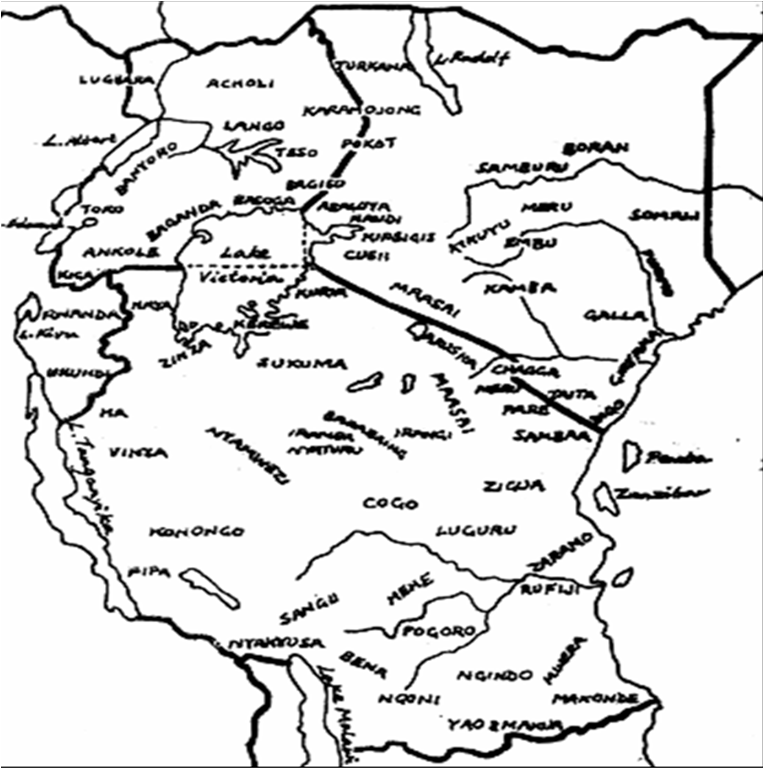The Nature of Pre-colonial State
A state by definition simply means a politically organized people of a definite territory who respond to common political control that is a central authority of leadership. In this case therefore, a centralized state or society may be defined as consisting of a number of communities ruled by a central authority.
Map of East Africa showing Major tribes

This
centralized authority may be represented by a king or by an association of
individuals who formulate regulations and laws governing the whole centralized
community. Classical examples of
centralized societies include
Politically,
a central authority represented either by a king or by an association of
individuals was the overall controller of all political, economic and social
affairs of a given society.
It was
organized in a way that society had to be administered, by making policies and
regulations without being questioned by the people concerned.
Also it was
the central authority which controlled the army, land and other affairs of that
society, it’s decisions were final, in other words, centralized systems
epitomized the highest degree of autocracy in the pre-colonial African
societies.
Militarily,
most of these societies had a regular well trained and equipped army which
equally was under the control and sole command of the central authority. Their duties were the protection or defense
of the society and expanding their territories.
Therefore, the survival of the central authority was greatly vested in
the hands of the army.
Economically,
the economies of these states were controlled by a central authority but given
that many of them were situated in the fertile tropical rain forest, the
savannas and on the plateau and some by sea coastal plains, they were greatly
involved in three types of economic activities.
Among these
were agriculture, trade and industry.
Although tributes from the vassal states were also of great significance
in some of these societies.
Socially,
these societies were characterized by social stratification in which societies
were divided into classes including the ruling class of the nobility, the
dignitaries, the class of the commoners and slaves.
Closely
related, women were grossly marginalized for they had a very little role to
play especially in societies’ administration.
Their noble activities were confined to kitchens and gardens until
post-colonial period era.
Religion
was another social aspect that played a very important role as a uniting factor
for the rulers were looked at as having a higher position than the ordinary men
because they practiced both political and religious duties. In other words, religion gave the kingly
office extra-ordinary powers over the natural forces.
It also
made the monarchy a symbol of unity of the entire community and a focus for the
sentiment of loyalty. The above analysis
in all supplies an over view of the common features or characteristics of
pre-colonial centralized societies whose details can be analyzed from the
following case studies.
This article is licensed under the GNU Free Documentation License. It uses material from the article "http://en.wikipedia.org/wiki/History_of_Africa".
Licensed under the Developing Nations 2.0
A Complete East African History ebook